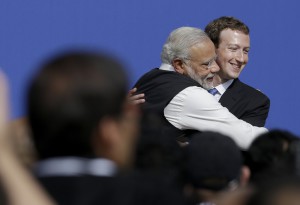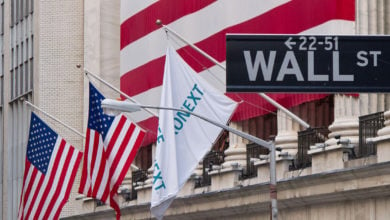
Mark Zuckerberg’s announcement that he and his wife, fellow billionaire and Facebook CEO Priscilla Chan, would donate $45 billion to charity initiated a deafening round of praise for Chan, Zuckerberg and other billionaire philanthropists. News outlets across the United States catapulted the story to the tops of their websites and featured extensive commentary about Zuckerberg and Chan’s generosity. That coverage has even gone as far as to include venomous criticism of Zuckerberg’s detractors: The liberal New York Times ran a piece entitled, “Why It’s Too Soon to Sour on the Zuckerberg Charity Plan,” whereas the Washington Post’s return-volley was innocuously dubbed, “Giving Away the Facebook Fortune.” The Post’s article, despite its inane title, begins with a shameless defense of America’s billionaire class, cynically concluding its introduction with a condescending dismissal of any criticism aimed at the super-rich: “Given the couple’s youth, and the immensity of their wealth, it’s not surprising if suspicion and resentment are added to the mix.”
It is indeed big news that Chan and Zuckerberg transferred such a huge sum of assets to a “charitable” LLC, but not for their great generosity or even the sheer depth of their pockets. It is big news because it is a scandalous act of deceit and self-aggrandizement.
What’s behind the criticism?
Many have criticized the donation as an effort by Chan and Zuckerberg to avoid taxes. In fact, many super-wealthy philanthropists before them have given away massive sums of money to charities, including Bill Gates and Andrew Carnegie. Where billionaires before have generally given to non-profits, however, Chan Zuckerberg Initiative is a Limited Liability Corporation (LLC) meaning it has special legal status excepting it from certain tax and legal burdens.
While a detailed explanation of the differences between an LLC and a 501(c)(3), commonly known as a charitable organization, is beyond the scope of this article, the main takeaway is that LLC’s are comparatively free in terms of the laws regulating them. For example, Zuckerberg is able to donate and retain control over his “donations” as investments, which are given in the form of Facebook stock. This frees the organization to make for-profit investments, which is is not permitted under a 501(c)(3).
The difference is not legal hair-splitting or cynical speculation: Facebook released a statement on Dec. 1 reading, “The Chan Zuckerberg Initiative will pursue its mission by funding non-profit organizations, making private investments and participating in policy debates, in each case with the goal of generating positive impact in areas of great need.” Without the qualifier, “in each case with the goal of generating positive impact in areas of great need,” this would be a pedestrian description of any other corporation’s activity. Its activity, in other words, is to seek profits, just like Coca Cola, Walmart or any other corporation. Zuckerberg and Chan still are the owners of that profit, since they head the LLC. They still direct how the Initiative will be “participating in policy debates” (read: lobbying).
In the most basic terms, Chan and Zuckerberg have simply gotten out of the social media business and switched over to the murky world of the non-profit industrial complex.
Chan and Zuckerberg’s decision to donate stocks is also suspicious at best. Take, for example, the tax codes regulating stock transfers. As Forbes author Robert W. Wood put it:
“Why donate stock? With stock, the donor gets a charitable contribution deduction based on the fair market value of the shares. Value and basis are different things, which can mean enormous tax advantages. In the past, Mr. Zuckerberg has donated hundreds of millions of dollars to charity, as he has to the Silicon Valley Community Foundation. Of course, he donates millions of shares, thus skipping tax on the run up in value.”
Obviously the tax code is much more complicated, but what Wood is pointing out comes down to this: The Chan Zuckerberg Initiative’s value is based off Zuckerberg and Chan’s investment, which is made up of Facebook stock. That stock is legally measured by each share’s basis—the price paid for it when it was initially purchased. That price does not represent the market value of the stock, which has risen dramatically over the years as Facebook continues to expand and grow. Thus, Chan and Zuckerberg are able to use Facebook shares, still owned and controlled by them via their status in their own LLC, in order to gain a profit while using the LLC as a shield against taxes since its value is essentially hidden by the stock market and the regulations governing it.
Revolutionaries and charity
On face of it, Zuckerberg’s stated goal of “advancing human potential and promoting equality” is quite laudable; only cynical and explicitly anti-people personalities could criticize that. But beyond the spurious promises of “charity” in light of the financial benefits Zuckerberg and Chan stand to gain, the idea of charity in the first place is one completely alien to people who are actually interested in advancing human potential and promoting equality.
Zuckerberg and Chan—some of the richest people in the world—will not forfeit their position in society. They will not give up all their wealth and join the workforce like millions of others who struggle. They have not worked harder than the millions of retail workers, machinists, drivers and other workers who struggle to make ends meet. Zuckerberg and Chan will instead remain super-wealthy, albeit less wealthy than if they had simply held onto their wealth.
The real issue is that charities do not actually change the most fundamental inequality in our society. It is no more a solution to inequality than a blood transfusion is a solution to a cut jugular. The Chan Zuckerberg Initiative may make a difference for some people, though this is only a possibility; Zuckerberg’s previous major foray into philanthropy in which Zuckerberg essentially threw $100 million on Newark public schools, crossed his fingers and hoped for the best, was deemed a failure by most of those who were paying attention. Even if it does help some, no amount of charity can solve the basic problem in society: the theft of most of the value produced by the working class by a tiny capitalist class. Even though workers are the ones running the assembly lines, driving the trucks, stocking the shelves and building the homes, it is their employers who profit. Recirculating a proportion of that stolen wealth back to the poorest and most vulnerable in society does not solve the basic issue: that the fruits of our labor have been stolen from us. That is why Zuckerberg and Chan state their goal as “promoting equality” rather than achieving it.





